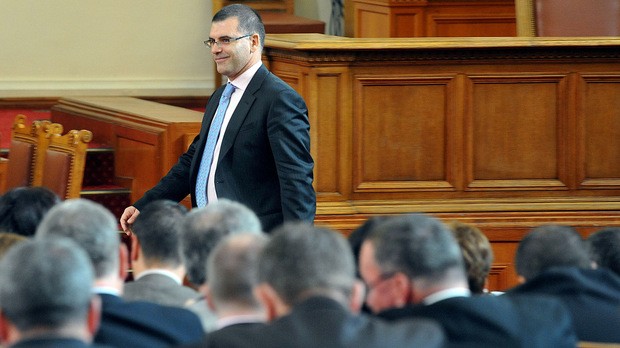BULGARIA FINANCE MINISTER, CENTRAL BANKER CLASH OVER NEW SILVER FUND RULES
Bulgarian National Bank (BNB) governor Ivan Iskrov has criticised the new rules concerning the management of the Silver Fund, passed by Cabinet on April 11, saying that the changes increased the risk to Bulgaria's financial stability and the Silver Fund itself.
The Silver Fund, created to shore up the state pension system at a point in future, is part of the country's fiscal reserve, which underpins Bulgaria's currency board agreement, upholding which is the main mandate of the BNB.
Initially scheduled to be used for pension payments starting 2020, the new regulations pushed back the starting date of Silver Fund payouts to 2028. But the main thrust of the changes, and the ones that BNB opposed most vocally, was that the Cabinet would be allowed to use Silver Fund money to buy Government debt.
Previously, the Fund was allowed to invest in foreign bonds, but the option was never exercised. Instead, the money has been kept in low-interest short-term deposits with the BNB, which has resulted in zero, or even negative yield in most years.
The Cabinet would be allowed to use up to 30 per cent of the Silver Fund to buy its own bonds this year; the ceiling would increase by 10 percentage points each year before peaking at 70 per cent in 2016, according to the amendments approved by the Government.
The Fund, currently at about 1.8 billion leva, is expected to see its endowment increase to two billion leva by the end of the year by incorporating privatisation and concession revenue. This means that the Cabinet could have as much as 600 million leva of the Fund's money to purchase its own securities.
BNB's decision to make a vocal stand was unexpected, given that the central bank rarely takes a public stance on issues of Government policy, but it was the second time this month that Iskrov came out criticising a Finance Ministry initiative, having last week warned the Government to curtail its efforts to strenghten administrative regulation of the banking sector (a move that the Finance Ministry says will increase transparency about how interest rates are fixed, which has been a long-standing gripe that customers have had with banks over the years).
The main argument used by BNB to justify its outspoken position was that the new regulation increased the risk to Bulgaria's financial stability. The Silver Fund is part of Bulgaria's foreign currency reserves and using part of the money to buy domestic securities would automatically decrease the size of forex reserves, a criterion that investors have long used to gauge the strength of the currency board, BNB said.
Answering BNB criticism, Finance Minister Simeon Dyankov said on April 12 that the central bank's reaction was a natural one. "If I were the [BNB] governor, I would have written the same letter," he told Bulgarian National Television.
The difference was that BNB was protecting the Silver Fund as it was envisioned, a passive asset, while the Finance Ministry wanted to make the asset profitable, Dyankov said.






